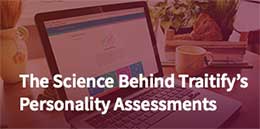Nine — to — 5 office hours are no longer the norm. Today, the work day for countless employees begins by checking email even before morning coffee has brewed and stretches well into evening hours. The ubiquitous nature of mobile devices allows us to be tethered to our jobs around the clock, serving as a curse for the workaholic who simply cannot get away from work. However, not everyone wants to stay connected to their jobs 24/7. For some who don’t, the advent of mobile devices and flexible schedules may make it easier to claim “telecommuting” while dodging the watchful eyes of supervisors.
In a previous article on this topic, we discuss how an individual can determine what their personal definition of work-life balance is. Regardless of where on this wide spectrum you find yourself, one thing is certain: the enormous cultural shift taking place in the workplace right now creates challenges to the conundrum of maintaining work-life balance. Interestingly, how we navigate this ever-present challenge depends largely on our personality, say the experts.
Assessing personality to determine how a job candidate may manage work-life balance
What’s more, new technology like Traitify— a psychology-backed assessment comprised of a diverse set of fun visual assessments to uncover personality types and traits — allows employers to learn about an employee candidate’s personality and, in turn, gauge how they will manage work-life balance issues — possibly even before they’re hired.
The Planner
Consider the “planner”. An employee who possesses this personality is extremely goal-oriented and very good with details — excellent traits for certain positions. However, the planner also has a tendency to display some obsessive compulsiveness.
“The planner is likely to be organized in his or her personal and professional life,” says Beverly Betz, MSW, BCD-P, vice president of Psychology at Traitify. Depending on the extent of a planner’s personal relationships outside of the workplace, such an employee could spend a lot of time at work, explains Betz. Imagine the planner pouring over complex schedules or creating elaborate and detailed spreadsheets — long after most workers have gone home for the evening.
Asking the right questions during an interview can help determine if a “planner” possesses enough significant personal relationships to offset the potential to spend too much time at work.

The Visionary
Then there’s the visionary. According to Traitify’s Betz, that’s the guy (or gal) with the big dream. The antithesis of the planner, the visionary sees the big picture. But the visionary may not be content to stop working until his or her vision is achieved — and that could take years, or even decades. The visionary tends to be at the helm of an organization, so a word of warning to a job candidate interviewing for a position: Find out if the boss is a visionary, and subtly ask employees in the organization what he or she is like to work for.
The Analyzer and the Inventor
The analyzer and the inventor possess similar personalities, explains Betz. The analyzer, she says, tends to “disassemble” thoughts and ideas mentally, then figure out how they work together. Similarly, the inventor spends time figuring out how to make things work. The personalities of the analyzer and the inventor lend themselves well to start-up companies, where like-minded employees work tirelessly — and often late into the night — to arrive at solutions to challenges presented by their work. An employer at a start-up looking to hire serious-minded workers may seek either analyzers or inventors. But high burnout is a very real possibility for these folks, and something they and their employers should be aware of.
The Action Taker
The action taker is an independent worker who needs minimal supervision to complete a given task. While they’re usually productive and self-motivated workers, action takers tend also to be actively engaged outside of their jobs, and therefore are likely to strive for a healthy work-life balance. Again, a savvy interviewer who inquires about a candidate’s interests outside of work can get a sense of whether the action taker’s time will be equally divided between work and home.
The Naturalist
What does a job candidate’s interest in the outdoors have to do with work performance and, subsequently, work-life balance? A lot, according to Betz. Like the action taker, the naturalist has interests outside of work that can lure that employee out of the office and into the world of gardening, hiking, or other types of exploration. To what extent the naturalist feels the need to indulge in these passions is important for an employer to learn prior to offering the candidate a job offer. If the naturalist wants to take a month off during a company’s busy season to hike the highest mountain peak, for example, this may not be a desirable fit for either party. And it’s essential that both employers and employees are satisfied — with their work and their time off.

Why does work-life balance matter, anyway?
When people are happy on the job, they tend to stay with their employer longer. And work-life balance is key to job satisfaction. Here’s proof. In a survey by global management consulting firm Hay Group, results showed that only 17 percent of employees working for an organization that supported work-life balance planned to leave their jobs within two years, compared with 27 percent of employees working for an organization that failed to provide this type of support.
Not only do happy workers stay with their employers longer, they perform better. Consider this: a poll by the Corporate Executive Board of 50,000 global workers found that employees who feel they have a good work-life balance work 21 percent harder than those who don’t.
Here’s yet another reason to maintain a healthy work-life balance. Work-related stress and fatigue due to overwork can actually lead to serious health problems. One University of California, Irvine study found that working more than 51 hours a week can triple an employee’s risk of hypertension. That’s serious.
So, whether you’re on the hiring or job hunting side of the table, keep work-life balance at the forefront of your priority list.
Want to find out more about your work personality? Check out our careers assessment to get started.




 Subscribe to Our Blog
Subscribe to Our Blog 
